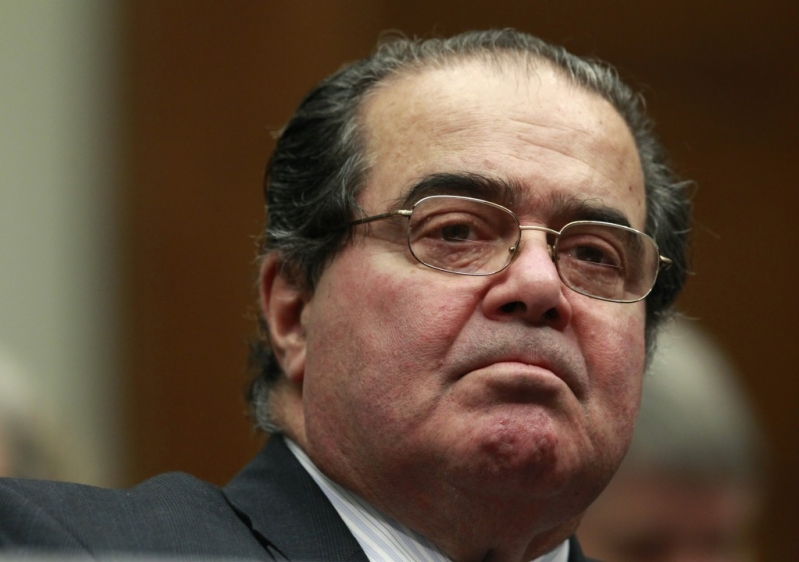
President Donald Trump announced on social media Monday he will announce his Supreme Court choice two days earlier than scheduled. "I have made my decision on who I will nominate for The United States Supreme Court," Trump tweeted. "It will be announced live on Tuesday at 8:00 P.M. (W.H.)."
In replacing the late Justice Antonin Scalia, the new president is selecting from a list of 21 people, nearly all of them federal or state judges (except for Sen. Mike Lee, R-Utah), who were comprised months ago by conservative interest groups. Among the list, three favorites reportedly emerged: federal appeals court judges Neil Gorsuch, 49, of Colorado, Thomas Hardiman, 51, of Pennsylvania and the original favorite, William Pryor, 54, of Alabama.
Trump's nominee likely will face intense opposition from Democrats in the Senate, where Republicans blocked former president Barack Obama's choice of federal appeals court Judge Merrick Garland last year, reports USA Today. Democrats, led by Sen. Chuck Schumer of New York, have vowed revenge for what many consider a stolen Supreme Court seat. Unless Trump can win over eight of them, Republicans will have to change the Senate's rules, eliminating the 60-vote threshold needed to bring the nomination to the floor. Trump endorsed such a move last week.
Trump said during his campaign he would seek to "appoint judges very much in the mold of Justice Scalia" - a characteristic which Gorsuch embodies in particular, reports Yahoo.
"The Supreme Court is what it's all about," Trump said in October's last presidential debate. He vowed to name justices who "will not do damage to the Second Amendment" and allow decisions on abortion rights "to go back to the states."
Trump also had said he wanted a judge who follows the Constitution as written by the nation's founders and federal laws as written by Congress, without imposing personal ideological or policy preferences.
In a speech to Case Western Reserve University's law school shortly after Scalia's death, Gorsuch praised the justice for his unyielding textualism - interpreting a law according to its plain text, rather than considering the intent of the lawmakers or the consequences of its implementation.
Gorsuch said Scalia's greatest achievement was his emphasis on the differences between legislators, who he said use the law according to their own morals and ambitions for society's future, and judges, who "should do none of these things in a democratic society."
"Judges should instead strive (if humanly and so imperfectly) to apply the law as it is, focusing backward, not forward, and looking to text, structure, and history to decide what a reasonable reader at the time of the events in question would have understood the law to be," Gorsuch said during the speech.
White House sources said the hope is to have the seat filled in time for the court's April sitting, the last of the 2016 term, when several controversial cases could be considered involving issues such as religious liberty and transgender rights.
Some Democrats fear Trump wants to pack the high court with conservatives willing to roll back precedents on issues such as abortion, civil rights, environmental protection and government regulations.
USA Today shared the following descriptions of the three frontrunners:
Neil Gorsuch, Colorado, U.S. Court of Appeals for the 10th Circuit.At 49 the youngest of the group, Gorsuch is the most natural replacement among them for Scalia. He is a strict adherent of originalism, Scalia's belief that the Constitution should be interpreted based on the intent of the Founders. He also has much of Scalia's flair as a writer.
Gorsuch has the type of academic credentials common to high court justices: Columbia, Harvard Law, even Oxford. He clerked for Justices Byron White and Anthony Kennedy, then practiced law in Washington and did a stint at the Justice Department.
Thomas Hardiman, Pennsylvania, U.S. Court of Appeals for the 3rd Circuit.A dark horse among the finalists, Hardiman, 51, isn't unfamiliar to Trump. He sits on the same U.S. Court of Appeals for the 3rd Circuit as the president's sister,Maryanne Trump Barry, who recommended him.
Hardiman's career as a judge is marked by law and order. He has maintained a solidly conservative record on issues involving guns, searches, police officers and prison guards - more so than Scalia, who often sided with criminal defendants against overzealous prosecutors. In that sense, Hardiman is much like Justice Samuel Alito, who came from the same appeals court.
William Pryor, Alabama, U.S. Court of Appeals for the11th Circuit.He's been the conservatives' justice-in-waiting for years, and at 54, the former Alabama attorney general comes straight out of central casting. Likely in his corner: U.S. attorney general-designateJeff Sessions, who preceded Pryor as Alabama's top law enforcement official.
But Pryor is controversial: He once criticized the Supreme Court's 1973 decision in Roe v. Wade, which legalized abortion, as "the worst abomination of constitutional law in our history." And he even has taken flack from conservatives concerned about a ruling he joined in favor of transgender rights.






